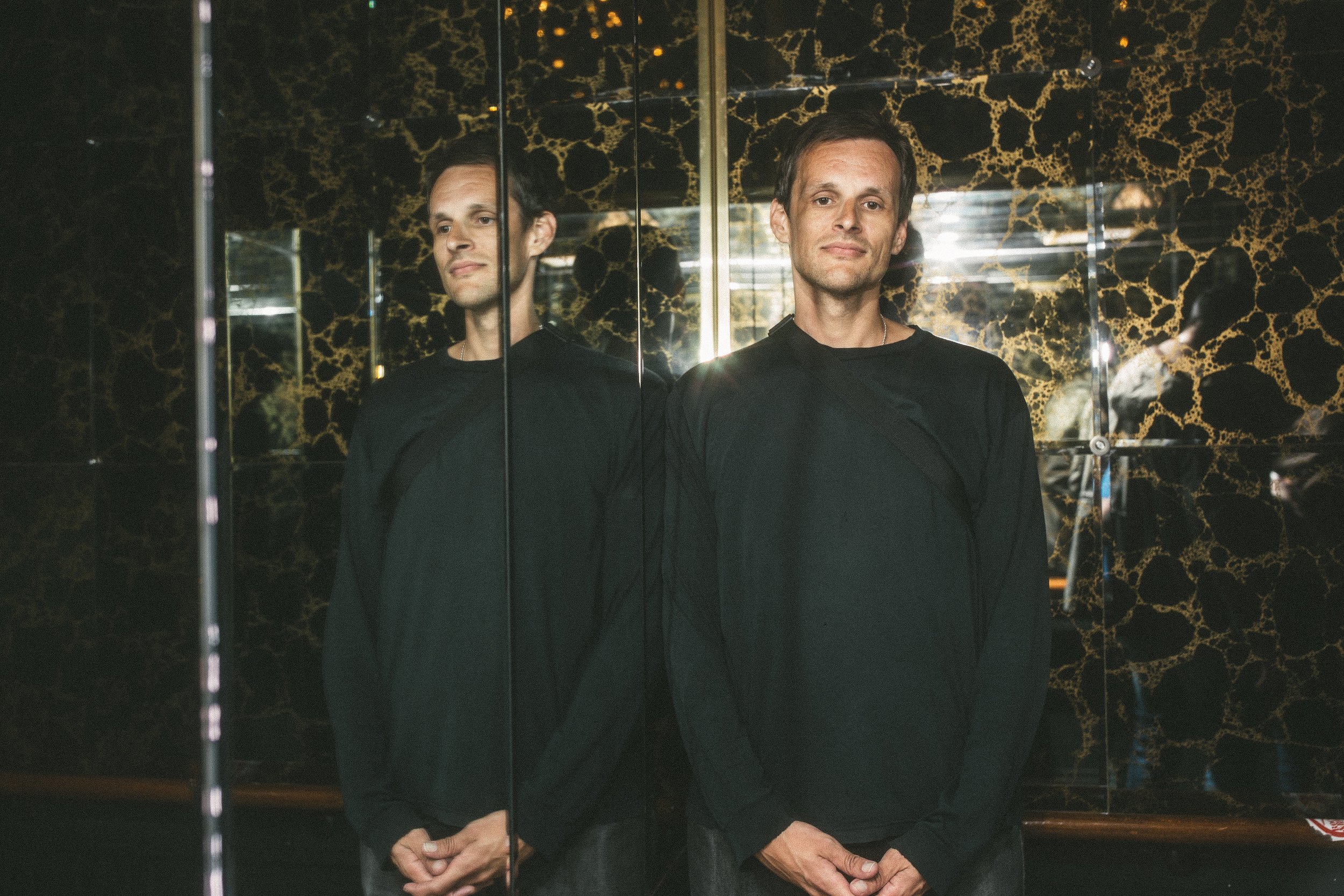$25 advanced, $30 day of show
General Admission (Standing) - Doors open at 7PM
https://www.nickwaterhouse.com/
“We had a joke in the studio,” says Nick Waterhouse. “Some of the guys were like, ‘Nick, you’re gonna end up at a press conference like Dylan in ’65: ‘Who’s The Fooler?’ ‘I don’t know, man, maybe it’s you! Maybe it’s me. Maybe I’m becoming The Fooler right now…’”The title of the sixth album from the Californian singer-songwriter is more than just the name of one of its dozen immaculate tracks. The Fooler is both a clue and a red herring. The Fooler is the observed and the observer, narrator and subject, truth and lie. The Fooler is the shadow and reflection of a city the artist knows sufficiently well to wander with his eyes closed, and a place which very possibly never even existed. The Fooler is not so much an unreliable narrator as a constantly shifting perspective. The Fooler is the new album by Nick Waterhouse, and it’s a lot.
“Many of the stories in the record come from that feeling of plasticity,” says Waterhouse. “What is memory? What is time? What is love between two human beings like in this imaginary city? It’s Cubist. A listener sees the angles of my life – and inexorably, my career – reflected in this work from all sides at once. I started thinking again about my university days, about modernist writers like Virginia Woolf, Christopher Isherwood, Hart Crane, or Ford Maddox Ford; about memory and how it betrays you; what you can see and what you can’t.” Recorded by Mark Neill in Valdosta, Georgia, the album is a song-cycle of sorts, the arc of the album telling a tale of a city and its denizens.
“There’s a phase shift that occurred writing this record,” says Waterhouse. “I had a breakthrough in how to tell stories in songs. It’s like an epiphany. I started realising how I could bend time in these words and a lot of the things that weave through the record. I have a perspective as a narrator now, instead of being the occupant of the songs.”
***
Nick Waterhouse is a modern American singer-songwriter who released his debut album, Time’s All Gone, in 2012. In his music you will hear echoes of things you might think you know, or believe you remember, filtered through the lens of a unique artistic perspective. You will hear rhythm and blues, garage rock, radio soul and wee-small-hours balladry – but reconfigured, made new. In Waterhouse’s music, the time is both now and then. The past is the present is the future. The sound is classic yet unclassifiable.
“I actually find it very fascinating,” he says. “I’m like, Where did this come from? Especially during this record, I started just becoming what Allen Ginsburg called a pure breath. I was becoming pure breath with my ideas.” His last record, Promenade Blue (2021), was lushly orchestrated and widely acclaimed. Since then things have moved on – and fast. The sense right now is of a vortex whirring. “The last tour I did was, in some ways, the most successful tour I’ve ever had, but it was a paper tiger,” he says. “We finished it and my inner compass said, We’re going to continue performing this, I’m going to live in this Promenade Blue world for a year – and that just isn’t how it works.” Cue The Fooler, messing with the narrative. “Instead, the
pendulum swung hard in the other direction. It was not intentional. It really shook me how much of a punctuation Promenade Blue actually felt like. I was shutting a door with that, I did everything I could with that world. Now, we’re into this other sonic world.”
The Fooler is partly a farewell to, and reclamation of, a version of Waterhouse’s past existence framed by a city that is part dream, part reality and part potential. “I had this whole life in San Francisco, and a lot of that city changed and dissipated and was levelled by, let’s be honest, money. In several years it was like somebody cut off the oxygen there. It really did happen, and it was sad for me. A lot of what I wanted out of life was there. I went through processing a lot of that over the years.”
Matters reached a head on a return visit to see an old friend during the COVID lockdown. “It was during a particularly peak experience, walking a street in San Francisco so surreally empty it felt like a dream, that The Fooler began to occur. The city had been somewhere I physically and emotionally had left some time before, and now it felt like Pompeii. The physical abandonment finally mirrored my internal image of the place; a vacant stage where things had played out so vibrantly at one time. This street in the city looked exactly the same in mid-day as it had at midnight, so long ago. I had already let go, but this was an even more physical manifestation of: Wow, this is all gone.”
Following that existential epiphany, “The Fooler” came quickly into view. Discussing the stellar title track, Waterhouse says: “It’s about how your own heart and your memories can betray you in really nice ways. The rest of the songs were all orbiting around that. It was like, Wow, I’m writing my city record. It’s a parting shot, but to a place that was already gone. And now it’s this record. I find that to be deeply moving and satisfying.” The beautiful black and white image on the album cover captures the mise-en-scène. It’s a previously unpublished photograph by the late, great photojournalist Jim Marshall of the legendary City Lights bookstore in San Francisco’s North Beach. Waterhouse used to live around the corner. “My local bars, Tosca and Specs, were directly across from City Lights. All of this life that I had was on that corner of Broadway and Columbus. There’s a lot of time slip, because that could have been me and my friends in that photo.” A pause. “Maybe I’m in there. I don’t know.”
Ben Pirani Trio opens
Soul music is many things to Ben Pirani: It’s positive and it’s hopeful. It’s a soundtrack for struggle, which is where soul music came from in the first place. That the struggle has been happening largely in the black community is not lost on Pirani, who is white — it’s something he thinks about a lot. “I feel really strongly that soul music is precious and must be treated with care and respect,” he says. “Anything less is colonizing the funk.” That brings us to another crucial point: real soul can’t be faked — it’s an expression of self that is so much more than mimicry of the sounds that have come before. “It’s called soul music,” Pirani says. “You’re supposed to sing from your heart and your soul and not your record collection.”
https://linktr.ee/benpiraninyc







